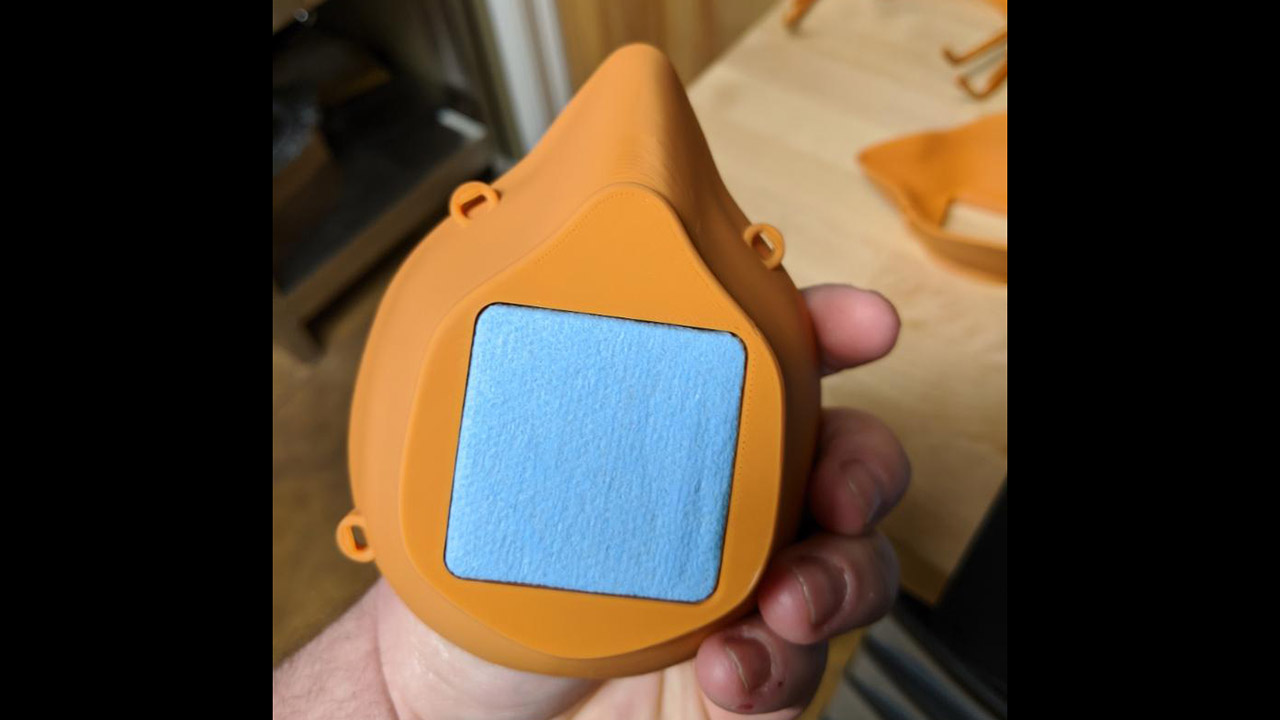ISU uses 3D printers to produce coronavirus personal protection equipment
POCATELLO, Idaho (KIFI/KIDK) – Idaho State University departments across campus are teaming up to use 3D printers to produce components for face shields, N95-compliant facemasks and other personal protection equipment for use by ISU clinics, ISU health care workers and Southeast Idaho emergency responders and health care workers.
ISU has been 3D-printing face shield and face mask components since Monday.

“I think we will really be able to help the needs of the university and our region,” said Leif Tapanila, director of the Idaho Museum of Natural History, who is coordinating ISU’s campus-wide effort. “These kinds of efforts are widespread across the state and country, to make models for 3D printers, find the plastic supply and answer the call to meet the needs for personal protection equipment.”
Jesse Pruitt, manager of the museum’s Idaho Virtualization Laboratory, said the IVL has up to eight 3D printers it can use to make equipment and several of those printers are already online printing out components.
So far, about 10 other 3D printers on campus have been identified that could potentially be used in the effort.
Currently, the ISU groups involved with the 3D-printing effort include the museum, the Kasiska Division of Health Sciences, the ISU Health and Safety Department, the College of Science and Engineering, the College of Arts and Letters, the College of Technology, and ISU Skaggs Treasure Valley Anatomy and Physiology Laboratories in Meridian.
“What I really enjoy is seeing all these different groups from campus rallying around the need to produce more protective gear,” Tapanila said. “This will be a developing story. It is still a growing list of who has a printer and materials to print.”
The groups making the components are consulting with ISU and public health officials to best determine what is needed. ISU will produce the equipment, which will then be distributed through the university and the public health network.
“We are trying to make sure the supplies we produce meet the needs of ISU clinics, first responders and the medical community,” Tapanila said.
The Idaho Museum of Natural History is putting on hold using its 3D printers to make new exhibits and is solely focused on using them to make PPE equipment.
Already, the Idaho Virtualization Laboratory is printing plastic headbands that can be fitted with 8-1/2- by 11-inch overhead transparency sheets to create effective face shields.
“I am really hoping I can get our big printer running and really get us some through-put on production,” Pruitt said.
The IVL is also currently looking at patterns to produce N95-compliant facemask components. It has materials on hand that could be used to produce the mask portion of N95-compliant masks and a workable filter media has been identified and as soon as the shipment arrives they will begin putting the masks together.
As the University’s effort goes forward, it will follow a pattern of itemizing what type of medical and PPE equipment is needed, match who is best able to produce that type of equipment, determine if there is an adequate supply chain to produce the equipment, and then produce a product that can be distributed through ISU and the public health network.
“The museum and campus may have limited access, but this feels like something tangible and real that we can do to help the community,” Tapanila said.




